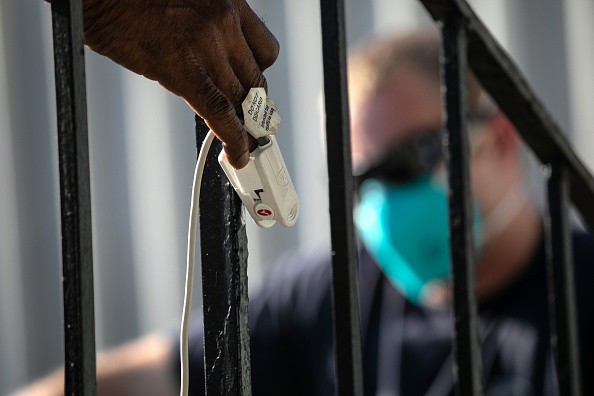COVID-19 Patient Suffers Brain Damage Following Infection, Makes Scientists Concerned
A COVID-19 patient with no respiratory symptoms for the virus suffered brain damage that caused concern for some scientists.

The 30-year-old male from Texas had difficulty speaking and walking, which are signs of cerebellum damage. The cerebellum is part of the brain that controls balance and coordination. The COVID-19 patient did not have any typical symptoms, including chest pains, fever, or cough, according to News Hub.
On Friday, Andrew Auerbach and Adriana Povlow from the University of Texas Health Science Centre wrote in a study published in the Journal of Emergency Medicine, "COVID-19 has not yet been reported as a cause of acute viral cerebellitis without associated respiratory symptoms."
They added that there were previous reports of neurological deficits from those COVID-19 symptomatic patients. It includes impaired consciousness, dizziness, confusion, propensity to develop acute strokes, hypogeusia, ataxia, anosmia, neuralgia, and epilepsy.
The Texas patient arrived at the hospital with vomiting, slurred speech, nausea, and difficulty walking. The manifestation of the patient-led doctors to believe that he suffered a stroke. His brain scans found no bleeding in his head. However, his x-rays showed mild inflammation in the upper lungs. The patient's COVID-19 PCR test came back positive later.
The man spent ten days in the hospital and had improvements in his neurological symptoms. Still, he needed a walking frame for ataxia, a lack of muscle coordination or control, once he could be discharged.
The authors urged the medical staff to "keep a high level of suspicion" for the coronavirus infections in patients, which manifest neurological symptoms at the onset.
More than 80% of people hospitalized with COVID019 have neurological symptoms like confusion, dizziness, and head and muscle aches, say another study published in the Annals of Clinical and Translational Neurology.
Researchers found 42,2% of patients with neurological symptoms or brain damage when they first came back sick, while 62.7% of COVID-19 patients reported these symptoms once they were hospitalized. 82.3% had, at some point, been infected with the coronavirus.
The same study found that about one-third of pf COVID-19 patients experienced encephalopathy, an altered brain structure or function. Male patients tend to experience encephalopathy, on average, 65-year-old patients and enter the hospital as soon as they experience COVID-19 symptoms.
Yahoo News reported that doctors in China previously warned that the coronavirus causes brain damage. In an April study published in Wuhan, China, more than a third of patients suffered impaired consciousness, loss of smell or sight, nerve pain, seizures, and other neurological disorders,
For months after being discharged from the hospital, other patients across the world have also reported suffering "brain fog." Mostly, the elderly patients were reported to have brain damage, which was always accompanied by other symptoms, as per Yahoo. In COVID-19 patients who also showed respiratory symptoms, they have been recorded to have a different acute cerebellitis case.
Check these out:
COVID-19 Symptoms Commonly Appear in This Order, Says a New Study
Vitamin D May Help Treat COVID-19, New Research Shows
COVID-19 Disease May Fall Men's Testosterone Levels, New Data Says
Subscribe to Latin Post!
Sign up for our free newsletter for the Latest coverage!

















